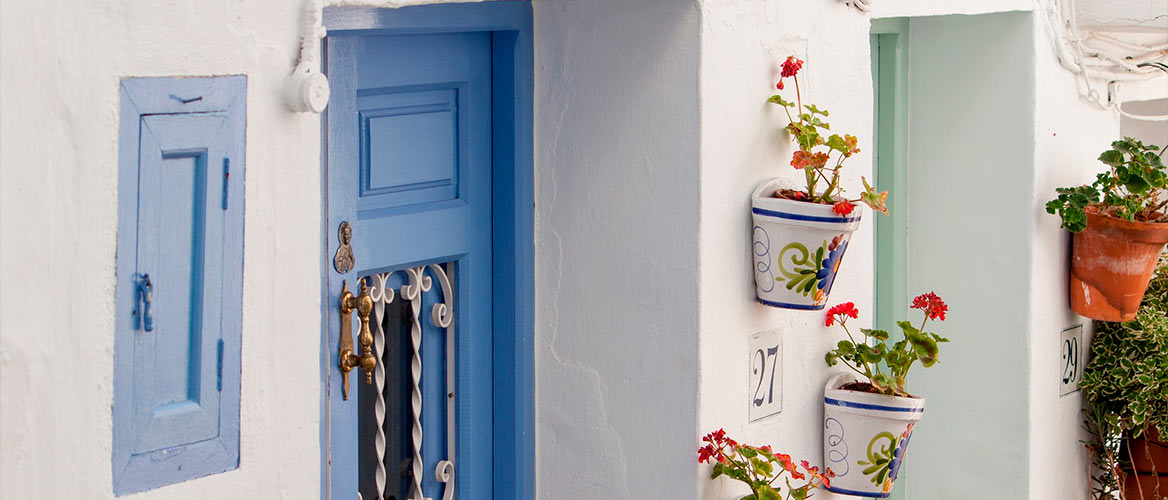September 21, 2023
July 4, 2023
The hunt begins! House hunting is an epic battle in many cities throughout Spain due to today’s competitive market. As a tourist hot-spot, more and more homes in Spain are being converted into tourist rentals, so long-term tenants have to go to war to find their next house or apartment. In major cities, expats and locals alike struggle to find adequate housing at an affordable price. The places that are nice and decently-priced are gone within what seems like the blink of an eye...
While you may want to move to Spain, everyone struggles to find their perfect place and it’s not always a pleasant experience. This gets harder if your idea is not just renting but buying. However, put in your best effort and hopefully you'll walk away with a great apartment! If in doubt, follow these top tips for your housing search. And don't forget to factor in a good home insurance to take care of any of your worries after you're all moved in and set up.

If you want to move to Spain, do your research first
Research the city you’re moving to and make a list of the neighborhoods you’d love to live in and those you will absolutely not even consider. This will narrow down your search and rule out any potential properties in your “no-go zones”. Don’t be too picky, though. If you find something that’s near an area you like, at least go for a visit. You might be surprised! And don’t forget to take into consideration things like noise level, transportation options, and supermarkets/stores nearby.
The time of the year matters...a lot
If you’ve ever asked an expat what it was like to find housing in Madrid after summer, they probably gave you a look of sheer horror. Although the Madrid housing market is competitive throughout the year, it grows to an unreal level in autumn when students flock to the city to begin their courses. Very busy times include the end of August, September, and October. There is more availability at the end of May and June, and during the summer months, due to students finishing their studies. For coastal towns, you'll have more difficulty during summer due to the tourist rush. And affordability is always an issue on the islands.
Look out for scammers
With so many people desperate to find housing, there are inevitably a lot of scammers looking to take advantage of the situation. The sad fact is, there is endless housing fraud out there (just look at this long list of common housing scams). Below, I list a few of the most common ones that the expat community in Madrid has experienced:
- If the apartment photos look fake, or too good to be true, it’s probably a scam. Do a Google Image search for the photos and see if anything comes up.
- Some scammers ask you to make your first payment through AirBnb, but the company has confirmed that this is not legitimate.
- Try not to pay anything online or in advance without seeing the apartment first. Some people pose as agencies/landlords and ask for a deposit to secure the apartment, then disappear.
- If you’re using a trusted website, always communicate through that website, where all conversations are recorded. Scammers will always try to contact you outside of these trusted sites.
- Some fraudsters double-rent the apartment and when you try to move in, someone else is already living there.
Agencies are a trade off of time vs. money
If you’re really struggling to find a place, consider using an agency. Agencies will help you with your search and act as a mediator between the landlord/owner and yourself when it comes to the security deposit, contract, disputes, etc. This can be wonderful when you’re not having any luck searching on your own, don’t know the area, or simply don’t have time to spend hours scouring the web. However, agencies do charge about one month’s rent for their services, and combined with the security deposit and rent due to your landlord right away, it can be a bigger financial burden than many people are prepared for. Also, always be on the lookout for scam agencies.

Know the rules, but be prepared for the unexpected
I'll tell you a tale about the search for my first apartment in Madrid. The landlord asked my husband and I, after having seen the flat for only 2 minutes, if we were prepared to give her our security deposit cash-in-hand right then and there to secure it. Umm, I needed more time to think...and I’m not normally just carrying around hundreds of euros in cash. But another couple was coming to visit in 10 minutes and there was the risk that they’d take it.
We decided we didn’t want the apartment, but we quickly realized that there are a lot of unspoken steps in the process of finding somewhere to live: handing over the security deposit as quickly as possible, negotiating the deposit amount (in Spain, it is technically only 1 month of rent, but some landlords ask for more), getting the contract signed by all parties (harder than you’d think), etc. You should be aware of your rights, but don’t be surprised if not everybody follows the rules.
Don't forget about home insurance
Many people think that home insurance is only the responsibility of the property owner, but this isn't always the case. If you're renting, check if your landlord has home insurance and what it covers. Some landlords only get coverage for the structure of the house itself (pipes, walls, floors), not the content inside (things like furniture and appliances). Complete coverage is typically called Home and Contents insurance, like the coverage provided by Caser's Integral Home Insurance Plan. If they don't have full coverage, make sure you're insured by searching for a plan that covers your possessions. Another type of home insurance that Caser offers is holiday home insurance, in case you have a holiday home in Spain and you are interested in obtaining coverage.
When it comes down to it, if you really want to move to Spain, you just have to jump right in! By following these tips and putting a lot of hard work into your home or apartment search, you’ll have the greatest chance of success! If you want some more tips on the best type of housing suited to your needs, finding the perfect apartment with ease, the differences between living in a big city vs. by the coast, and useful Spanish vocabulary for renting or buying a property in Spain, download Typical Non Spanish’s free guide.
.png?width=344&height=67&name=logo_caser%20(2).png)









Let Us Know What You Thought about this Post.
Put your Comment Below.